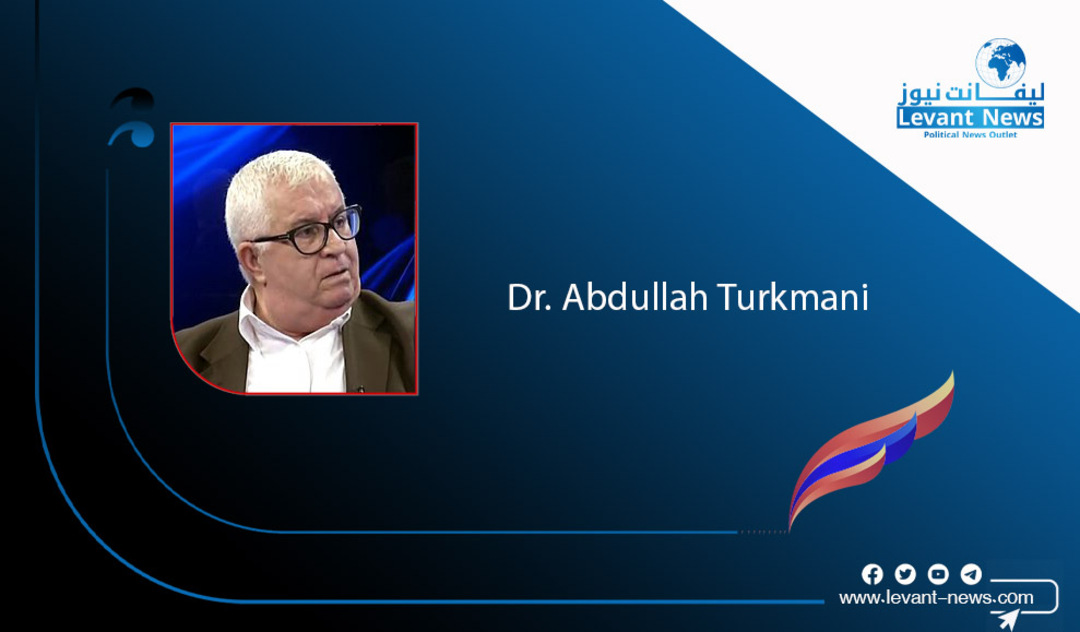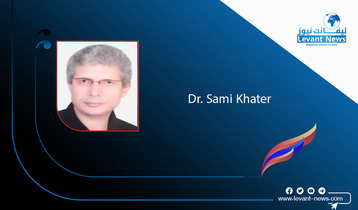-
Foundations for the Transition of the New Syrian State to a Developmental State (2 - 2)
-
How Syria Can Transition to a Developmental State

The nature of authority that manages state institutions is the decisive factor in developmental policies. If the de facto authority after the change reflects the interests of citizens to meet their basic needs for work, housing, health, and education, and establishes infrastructure that facilitates their lives, it can lead to a hopeful outcome. Conversely, if it is a despotic authority that utilizes the state to serve the interests of its supporters, the situation is bleak. The Syrians’ experience with enduring despotic authority for six decades makes the first option the hope they aspire to.
We attempt here to envision the role of the new Syrian state in the comprehensive development process and explore the best form for its role in balancing developmental policies. We aim to benefit from the experiences of countries that have transitioned from revolutions and civil wars to successful developmental options, as well as those that have moved from authoritarian states to developmental states.
It is essential to reshape the development trajectory to effectively address the challenges arising from the past fourteen years, by utilizing Syria's available economic and human resources, supplemented by reconstruction projects that regional countries and international organizations can engage in. This requires a stable security and political environment that preserves basic human rights and adheres to principles of justice for all Syrian citizens—essentially establishing good governance capable of achieving participatory development, efficiently deploying available resources. In this context, a civil society striving for partnership with the state and the private sector can become a driving force to achieve developmental policies that meet the needs of the citizens.
The Necessity of the Political Transition Process
It is not possible to discuss developmental policies in the absence of a real political transition that ensures a shift from a state dominated by an oppressive family to one that opens the horizon towards a government that guarantees public freedoms and basic human rights, as enshrined in the new social contract. Freedoms are the "tools, guarantees, and objectives of human development, encompassing political, civil, economic, and social freedoms, and related to the opportunities available for people to determine who should govern and according to what principles, as well as the ability to monitor and criticize authorities, enjoy political expression, and have a free press." This guarantees good governance that effectively utilizes economic and human resources for participatory development, fulfilling the needs of the Syrian people based on the rule of law, transparency, accountability, and partnership.
Thus, it appears that the starting point for comprehensive development is political development to ensure the ability to utilize resources for new developmental policies and to launch Syrians' initiatives for partnership in future development projects, by broadening the ownership base through the generalization of joint-stock companies and facilitating small and medium enterprises, to secure a decent standard of living.
In the context of the partnership of Syrians, it is essential to empower women and youth and ensure their full rights as free citizens; their level of participation will determine the fate of comprehensive development, given their added value to development projects.
The Role of the Contemporary State in Participatory Development
The mission of the contemporary state is not only to exercise sovereignty over its society but, more importantly, to employ state resources to achieve comprehensive development that meets citizens' needs and guarantees their well-being, through its contribution to maximizing these resources by engaging in the contemporary knowledge society and its associated knowledge economy. The goal is to enhance national production in a few years after the change in Syria. The knowledge gap is a significant indicator of the extent to which countries can achieve comprehensive development for their societies. Therefore, acquiring modern knowledge and leveraging it to improve human capacity performance—particularly by tapping into the role of knowledgeable and experienced youth—can establish the foundations for a welfare state that meets citizens' needs as rights rather than as gifts from the state. Such a state "requires a balance in the method of power and resource sharing between capital and labor forces, as supporting a welfare state is necessary to prevent the state from descending into fascism."
Thus, the desired welfare state requires the integration of the foundations of development: political, economic, social, and cultural. This necessitates state intervention in defining developmental policies and providing their foundations, in balanced partnership with the private sector and civil society organizations, through legislative and regulatory frameworks that ensure success in achieving comprehensive development goals.
The significance of civil society organizations in achieving participatory development is underscored by the fact that their relationship with the developmental state is one of "complementarity, mutual dependence, and role distribution, as one of the manifestations of the modern state, which secures its conditions for establishment through legislating a rights system that regulates the practices of all parties and groups within society."
Thus, comprehensive development is not solely the task of the state—in planning and implementation but relies on participatory development to meet citizens' rights to a dignified life, not solely depending on government agencies, but through collaboration among all economic and social actors involved in comprehensive, sustainable, and just development.
Conclusion
The activation of participatory development policies is dependent on the completion of the political transition process, i.e. the Syrian developmental advancement is dependent on the transition to civil peace, i.e. the reconstruction of a stable and secure Syrian state that can secure political conditions for democratic transition that unleash public freedoms for Syrians, and that help form the historical bloc of culture and work with the aim of launching participatory development projects that employ human and economic resources to meet the basic needs of citizens at first, in the hope that they will lead to a welfare state in the future.
It is very difficult to estimate the success of the first development phase, given the size of the Syrian disaster after fourteen years of conflict, in addition to the effects of the continuation of tyranny for 54 years. Perhaps the availability of factors of security, stability, and the rule of law, and the achievement of the foundations of participatory development, can contribute to the success of this phase.
Thus, reaching a state that secures welfare for citizens depends on the extent to which Syria's future responds to the requirements of a knowledge society and economy, by qualifying young generations through modern educational curricula to secure a climate of creativity and innovation. Thus, we can talk about a developmental state capable of guaranteeing housing, work, health, education and welfare for its citizens without discrimination, and in a manner that preserves their dignity.
Dr. Abdullah Turkmany
You May Also Like
Popular Posts
Caricature
BENEFIT AGM approves 10%...
- March 27, 2025
BENEFIT, the Kingdom’s innovator and leading company in Fintech and electronic financial transactions service, held its Annual General Meeting (AGM) at the company’s headquarters in the Seef District.
During the meeting, shareholders approved all items listed on the agenda, including the ratification of the minutes of the previous AGM held on 26 March 2024. The session reviewed and approved the Board’s Annual Report on the company’s activities and financial performance for the fiscal year ended 31 December 2024, and the shareholders expressed their satisfaction with the company’s operational and financial results during the reporting period.
The meeting also reviewed the Independent External Auditor’s Report on the company’s consolidated financial statements for the year ended 31 December 2024. Subsequently, the shareholders approved the audited financial statements for the fiscal year. Based on the Board’s recommendation, the shareholders approved the distribution of a cash dividend equivalent to 10% of the paid-up share capital.
Furthermore, the shareholders endorsed the allocation of a total amount of BD 172,500 as remuneration to the members of the Board for the year ended 31 December 2024, subject to prior clearance by related authorities.
The extension of the current composition of the Board was approved, which includes ten members and one CBB observer, for a further six-month term, expiring in September 2025, pending no objection from the CBB.
The meeting reviewed and approved the Corporate Governance Report for 2024, which affirmed the company’s full compliance with the corporate governance directives issued by the CBB and other applicable regulatory frameworks. The AGM absolved the Board Members of liability for any of their actions during the year ending on 31st December 2024, in accordance with the Commercial Companies Law.
In alignment with regulatory requirements, the session approved the reappointment of Ernst & Young (EY) as the company’s External Auditors for the fiscal year 2025, covering both the parent company and its subsidiaries—Sinnad and Bahrain FinTech Bay. The Board was authorised to determine the external auditors’ professional fees, subject to approval from the CBB, and the meeting concluded with a discussion of any additional issues as per Article (207) of the Commercial Companies Law.
Speaking on the company’s performance, Mr. Mohamed Al Bastaki, Chairman BENEFIT , stated: “In terms of the financial results for 2024, I am pleased to say that the year gone by has also been proved to be a success in delivering tangible results. Growth rate for 2024 was 19 per cent. Revenue for the year was BD 17 M (US$ 45.3 Million) and net profit was 2 Million ($ 5.3 Million).
Mr. Al Bastaki also announced that the Board had formally adopted a new three-year strategic roadmap to commence in 2025. The strategy encompasses a phased international expansion, optimisation of internal operations, enhanced revenue diversification, long-term sustainability initiatives, and the advancement of innovation and digital transformation initiatives across all service lines.
“I extend my sincere appreciation to the CBB for its continued support of BENEFIT and its pivotal role in fostering a stable and progressive regulatory environment for the Kingdom’s banking and financial sector—an environment that has significantly reinforced Bahrain’s standing as a leading financial hub in the region,” said Mr. Al Bastaki. “I would also like to thank our partner banks and valued customers for their trust, and our shareholders for their ongoing encouragement. The achievements of 2024 set a strong precedent, and I am confident they will serve as a foundation for yet another successful and impactful year ahead.”
Chief Executive of BENEFIT; Mr. Abdulwahed AlJanahi commented, “The year 2024 represented another pivotal chapter in BENEFIT ’s evolution. We achieved substantial progress in advancing our digital strategy across multiple sectors, while reinforcing our long-term commitment to the development of Bahrain’s financial services and payments landscape. Throughout the year, we remained firmly aligned with our objective of delivering measurable value to our shareholders, strategic partners, and customers. At the same time, we continued to play an active role in enabling Bahrain’s digital economy by introducing innovative solutions and service enhancements that directly address market needs and future opportunities.”
Mr. AlJanahi affirmed that BENEFIT has successfully developed a robust and well-integrated payment network that connects individuals and businesses across Bahrain, accelerating the adoption of emerging technologies in the banking and financial services sector and reinforcing Bahrain’s position as a growing fintech hub, and added, “Our achievements of the past year reflect a long-term vision to establish a resilient electronic payment infrastructure that supports the Kingdom’s digital economy. Key developments in 2024 included the implementation of central authentication for open banking via BENEFIT Pay”
Mr. AlJanahi concluded by thanking the Board for its strategic direction, the company’s staff for their continued dedication, and the Central Bank of Bahrain, member banks, and shareholders for their valuable partnership and confidence in the company’s long-term vision.
opinion
Report
ads
Newsletter
Subscribe to our mailing list to get the new updates!





















